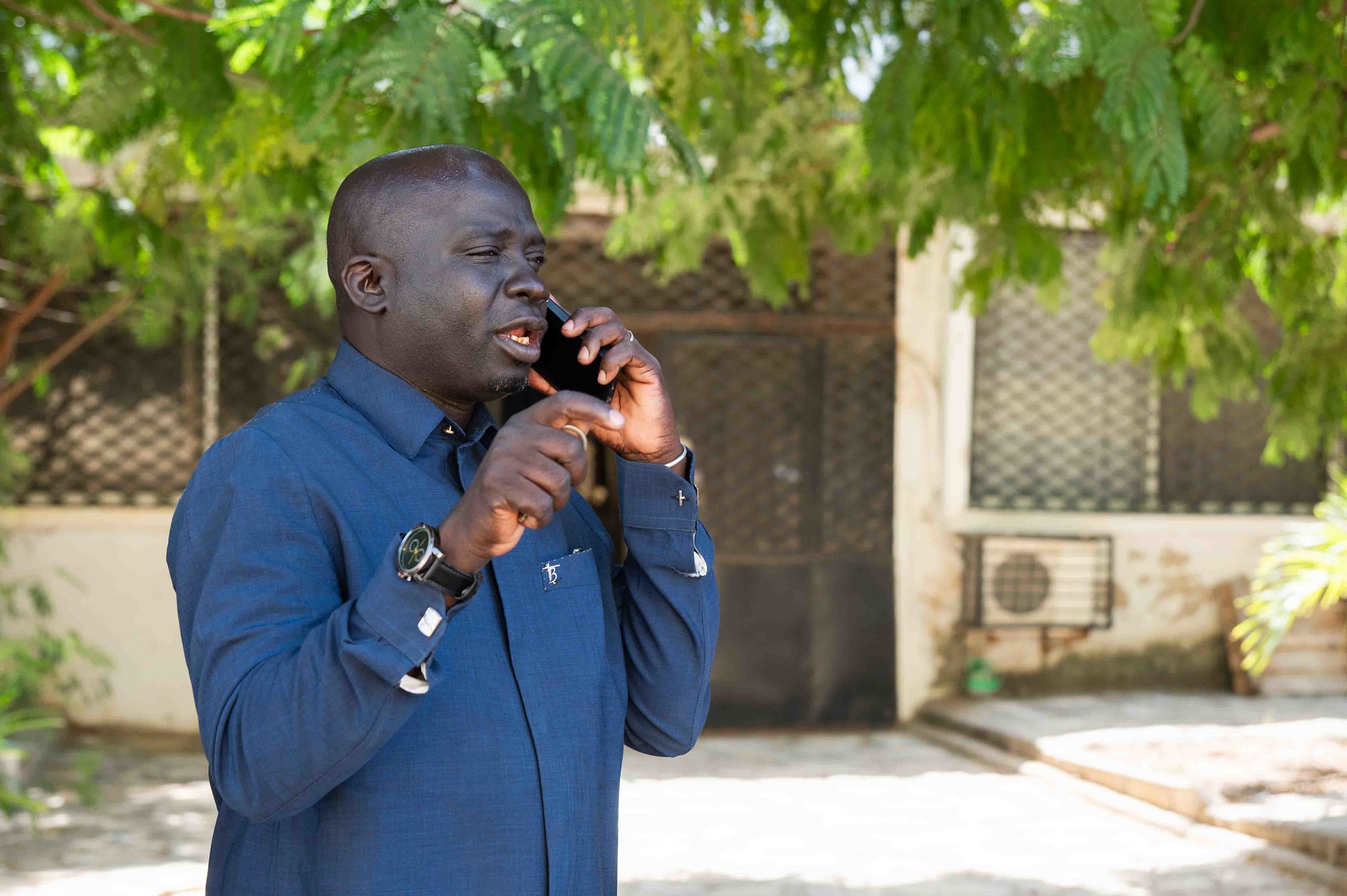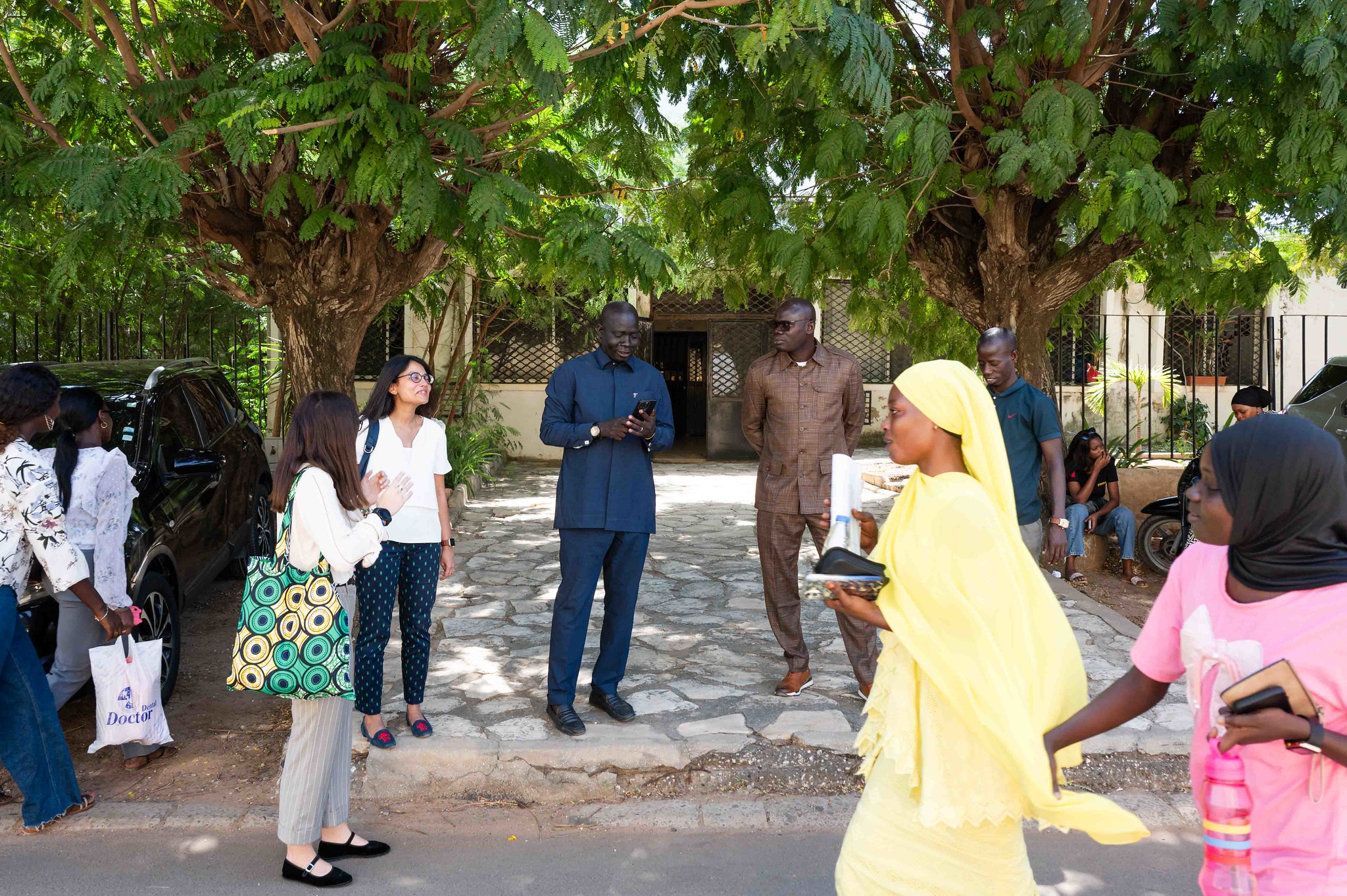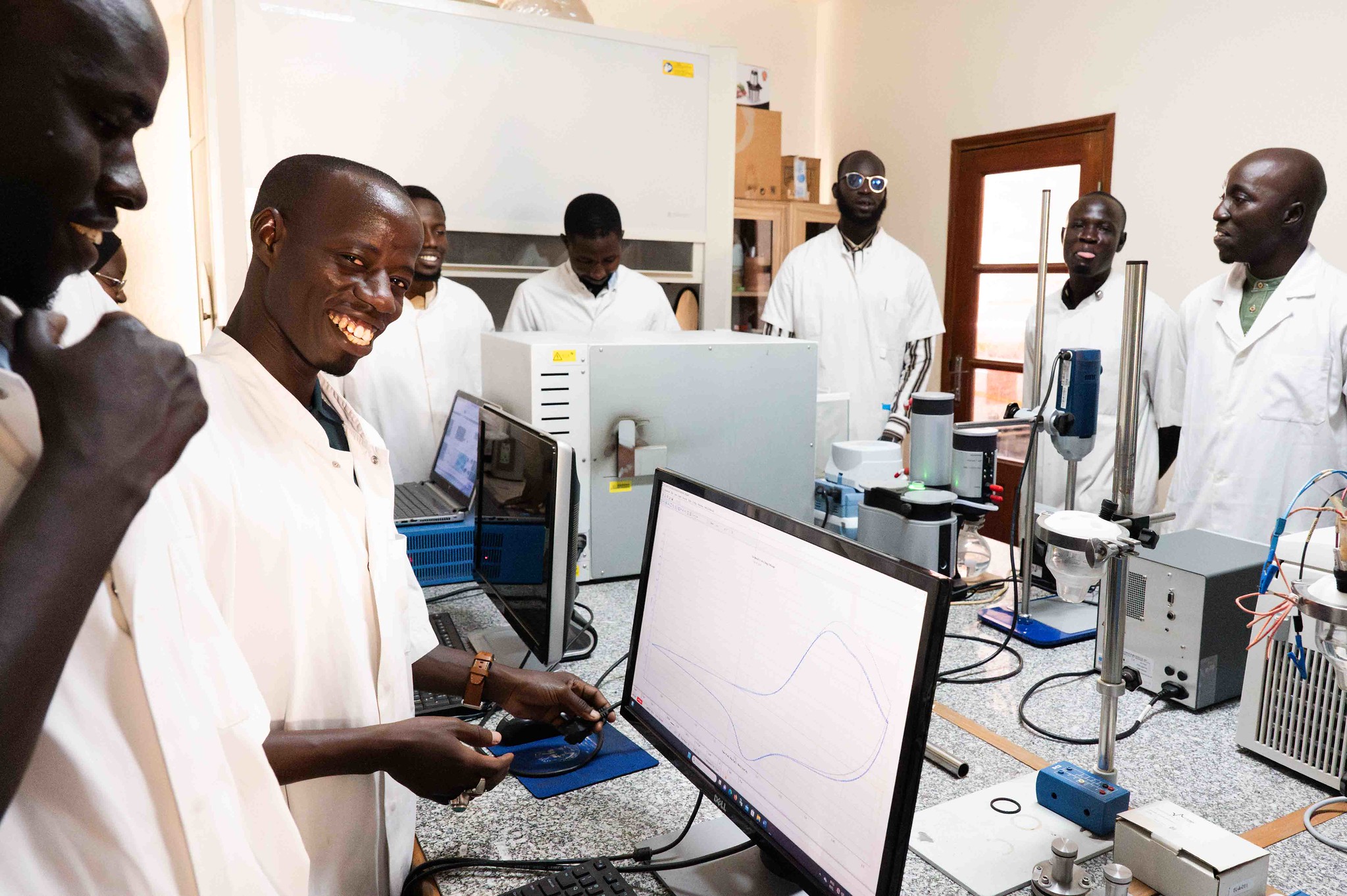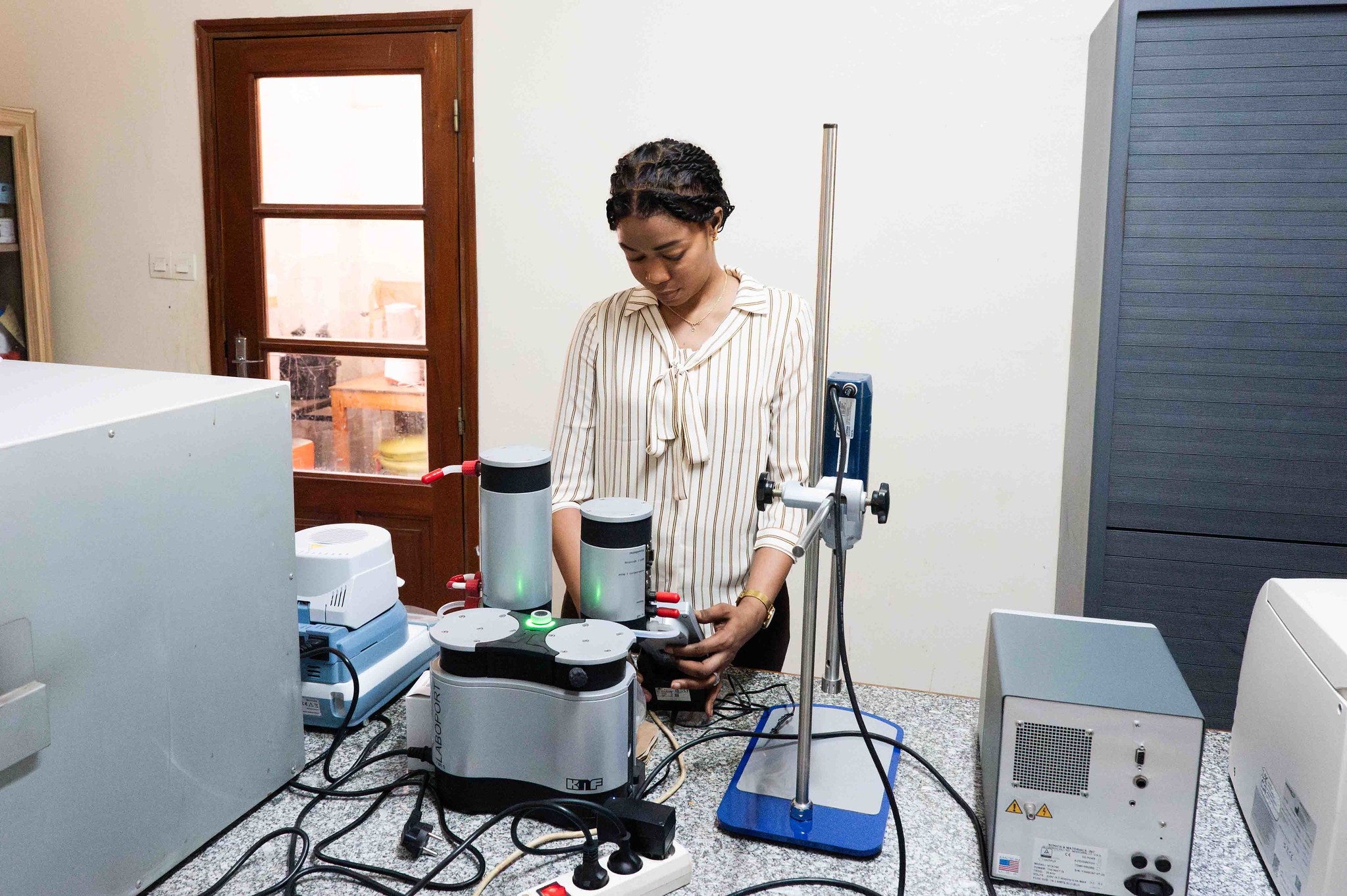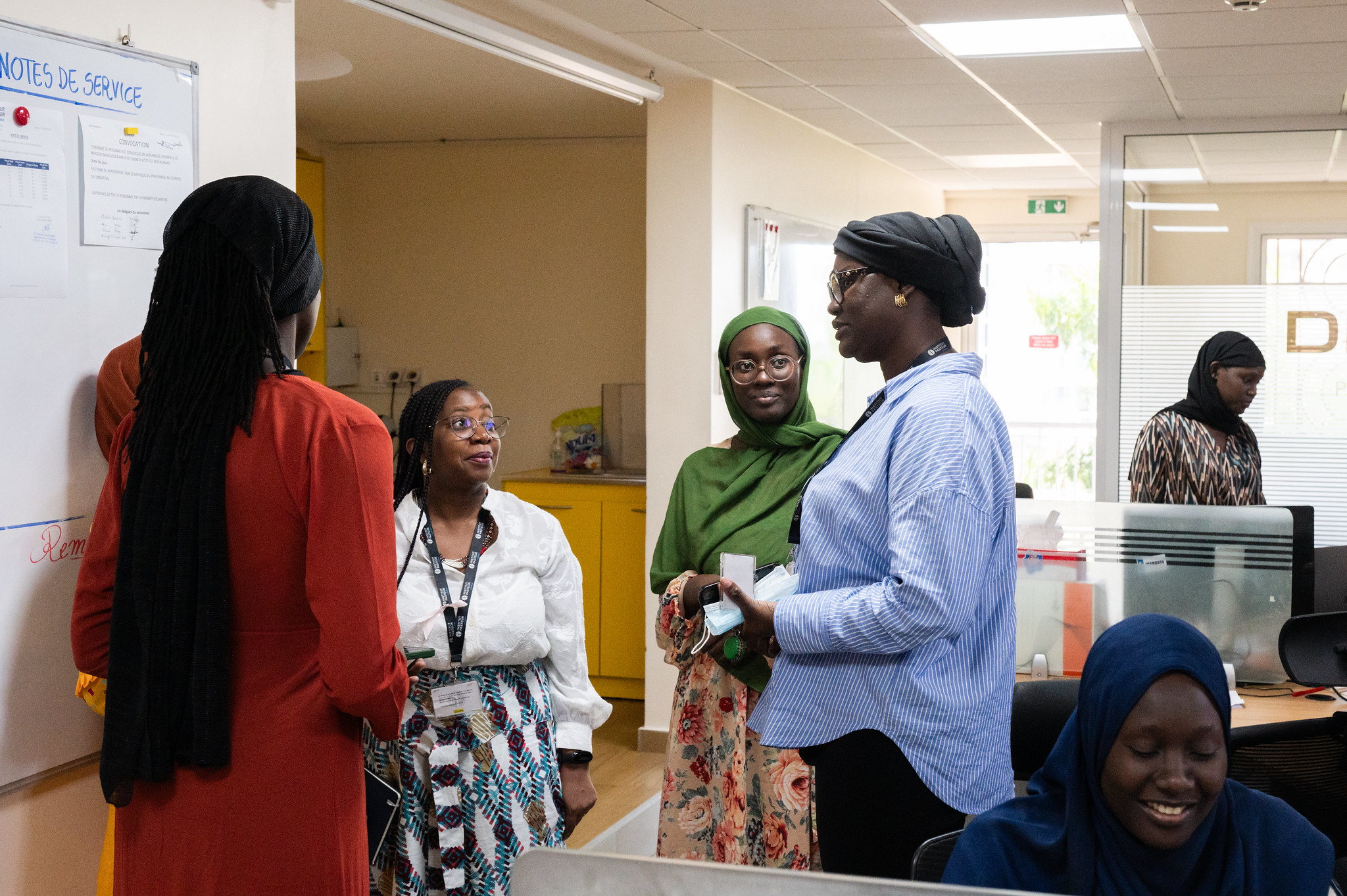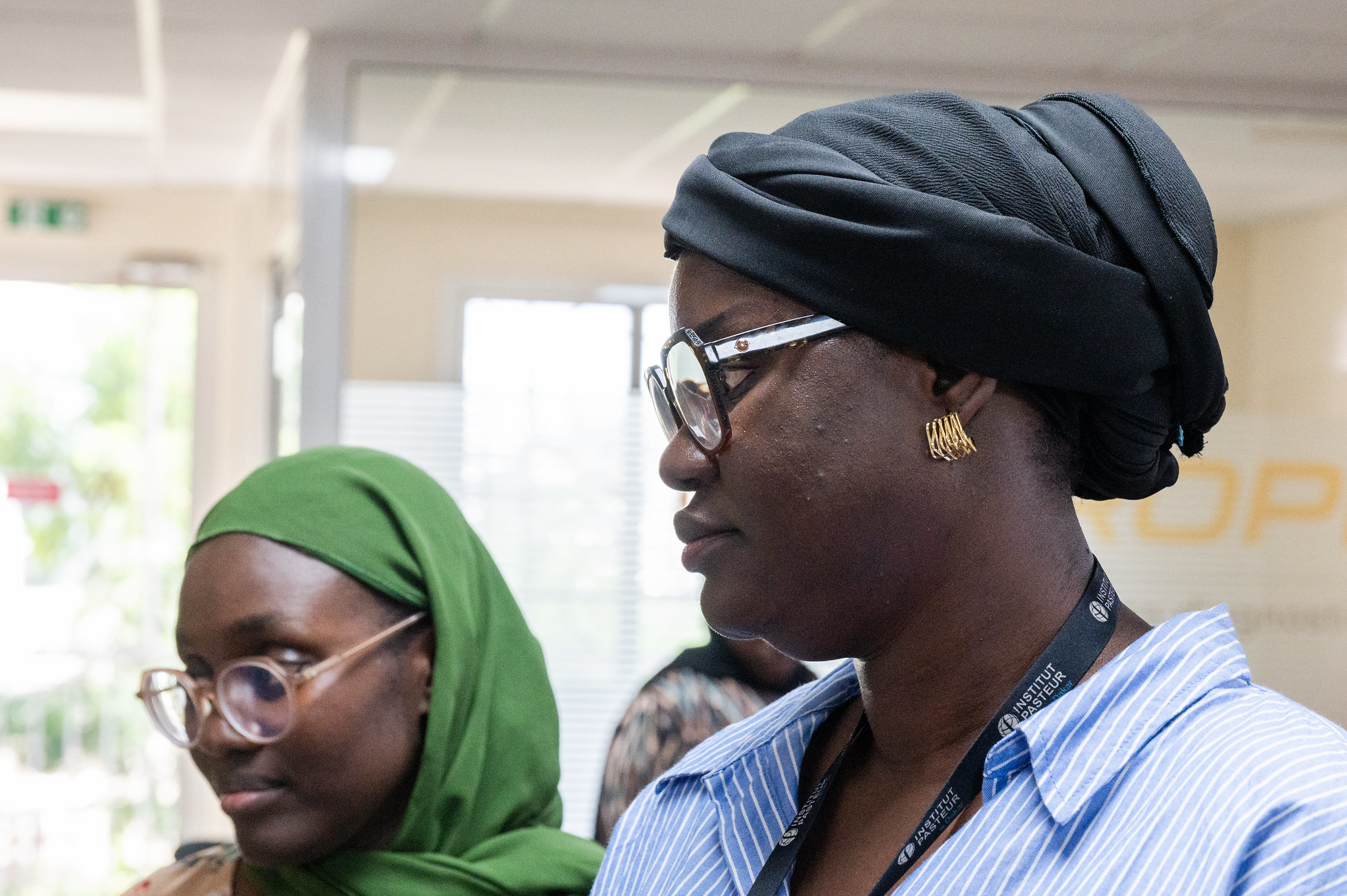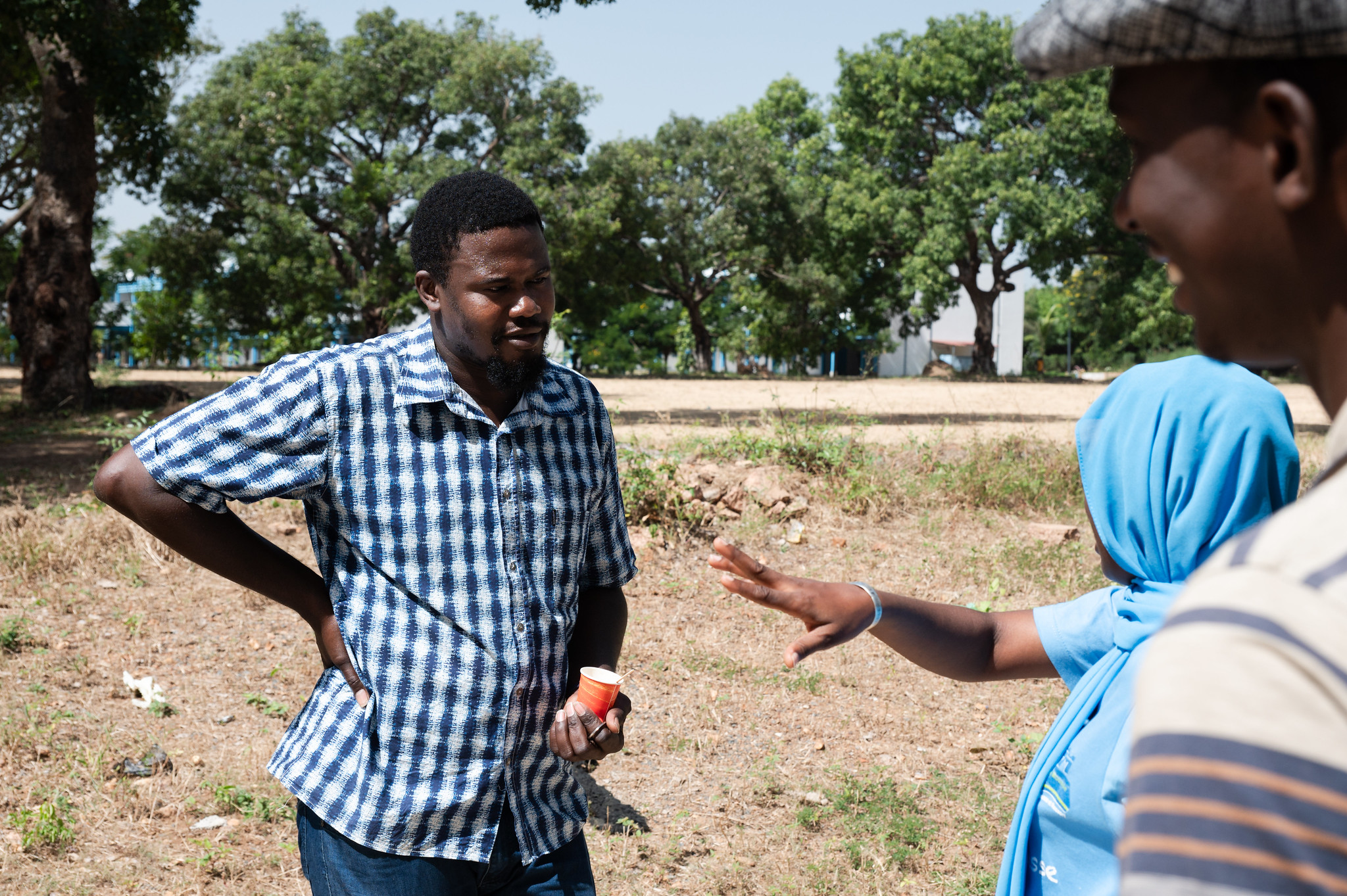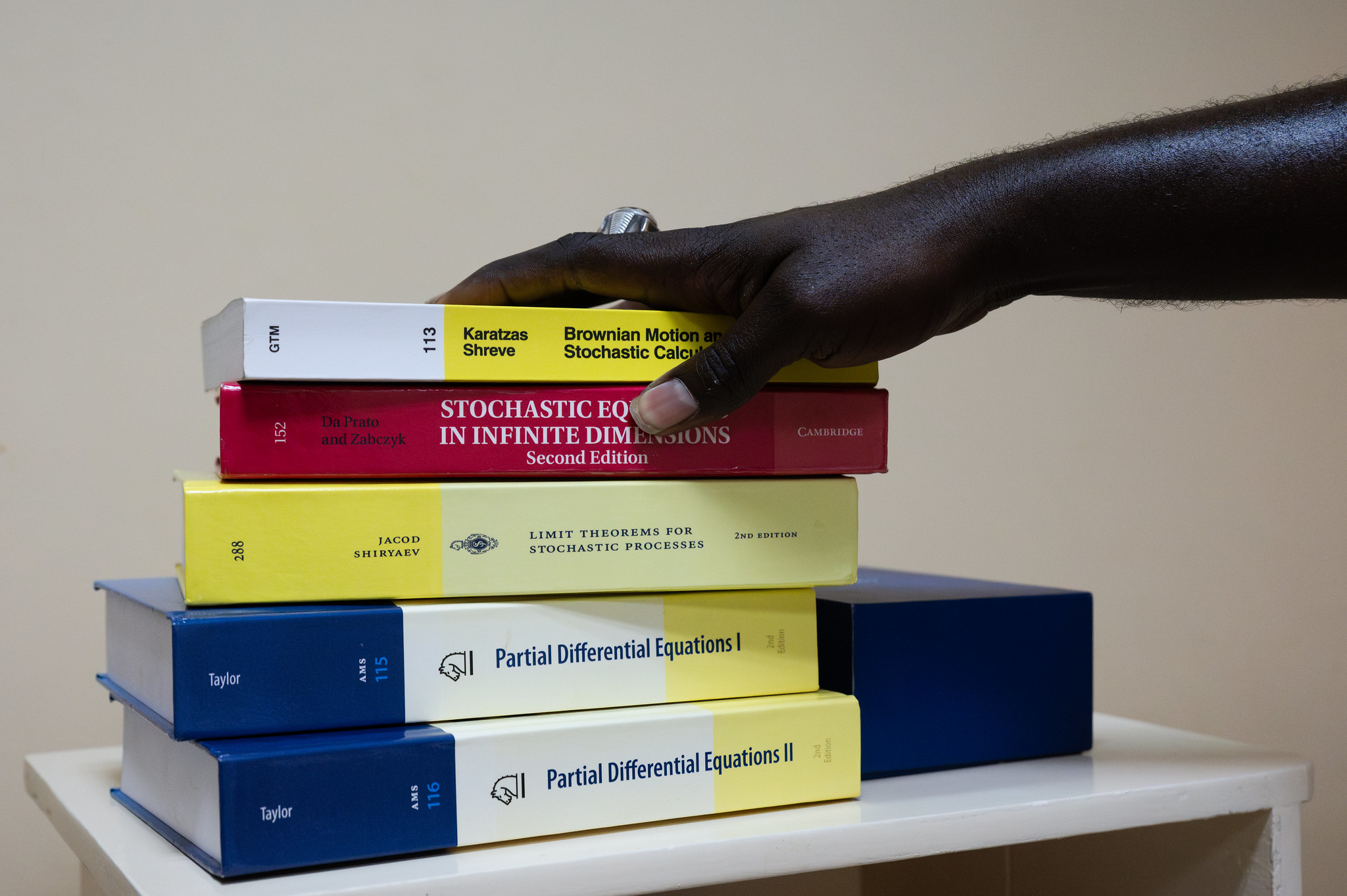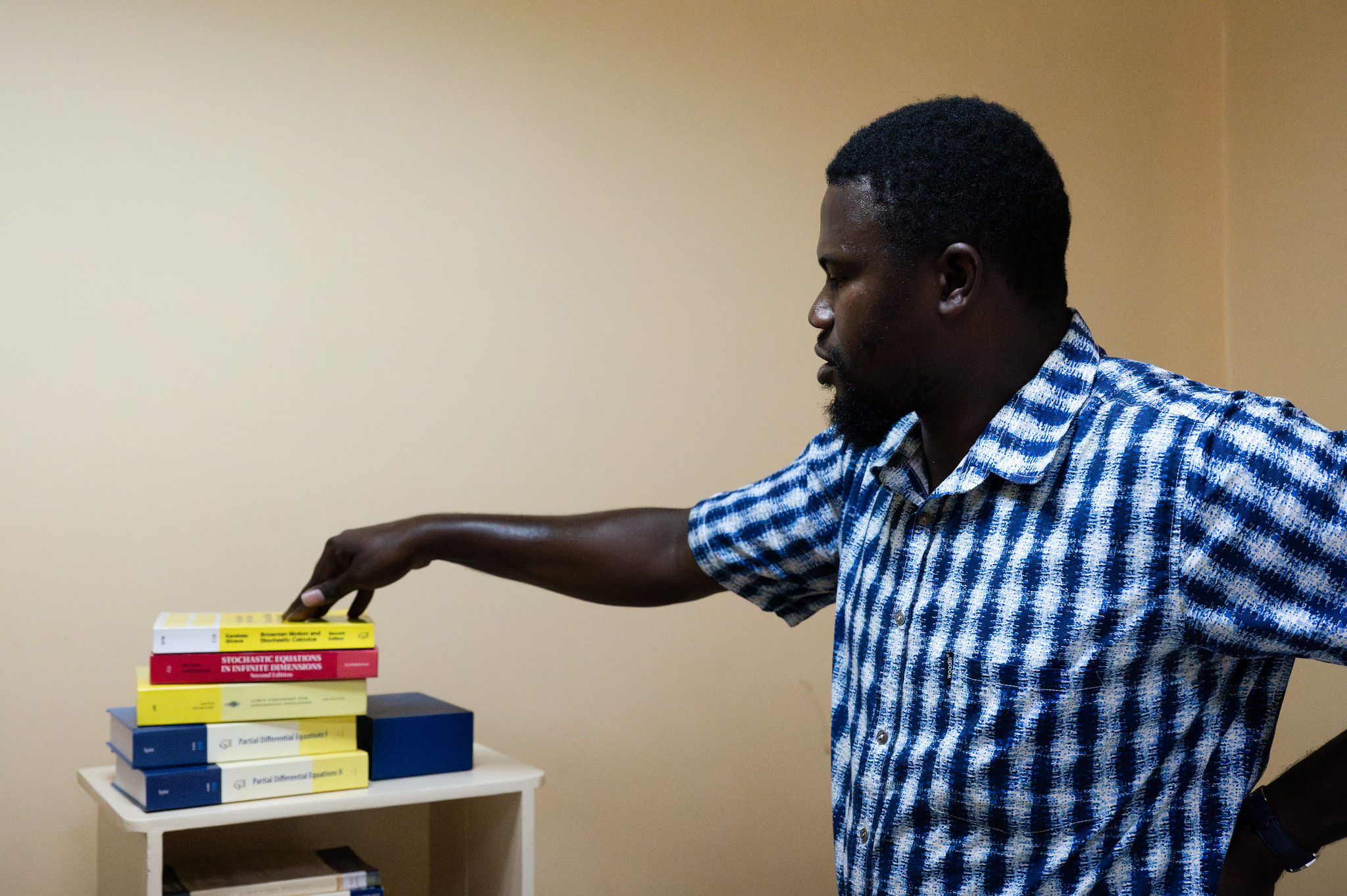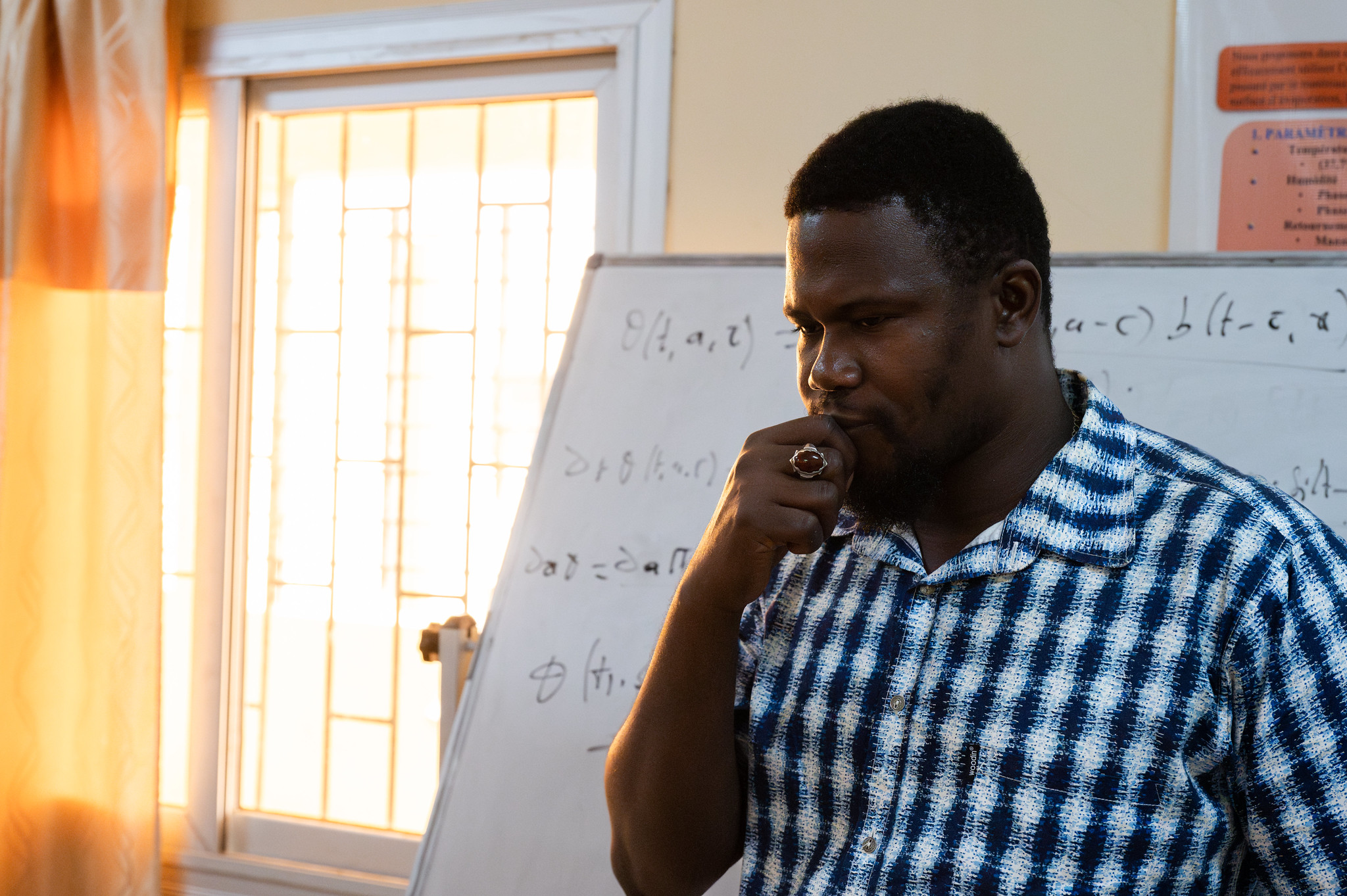DAKAR, Senegal — Along the coastline, Atlantic waves crash against sun-bleached shores. Just meters from the seafront, bustling boulevards form a dynamic urban tapestry. Here in Senegal’s capital, a new generation of researchers is pioneering scientific advances, working to transform their societies and create a lasting impact for future generations.
TWAS Research Grants programme, supported by the Swedish International Development Cooperation Agency (Sida), is providing unique opportunities to early career researchers and their work at the University Cheikh Anta Diop (IPD), and the Thiès Polytechnic School. These grants demonstrate how targeted scientific funding can spark solutions to challenges related to energy, health, and sustainable development.
Transforming Waste into Energy: A Local Solution to a Global Challenge
Over 100,000 students attend courses at the UCAD campus, making it one of the largest universities in West Africa. It is a green oasis, set apart from the frenetic traffic of Senegal’s capital city of Dakar, to create an environment that cultivates learning, growth, and innovation.
At UCAD’s physics department, nanomaterials physicist Balla Diop Ngom is a popular and well-known figure. In his two-room ground-floor laboratory, 44 researchers pursue master’s degrees or PhDs through their hunt for solutions to Africa’s growing thirst for energy. Ngom’s transformative idea is to convert discarded peanut shells into sustainable batteries. According to the African Union Development Agency, the energy needs of Africa are expected to more than triple by 2040—as the continent continues to industrialize and people migrate to cities, earn higher incomes, and adapt to the effects of climate change.
The International Energy Agency (IEA) reported that in 2022, 75% of Senegal’s population—one of the highest rates in sub-Saharan Africa—had access to electricity. Still, while 97% of those living in cities can access energy, 45% of those living in rural areas cannot.
A cheap and clean source of energy can hence make a big difference for those who live off-grid. Ngom’s answer to this problem is ‘biomass-derived green advanced energy storage technology’, or turning food waste into batteries.
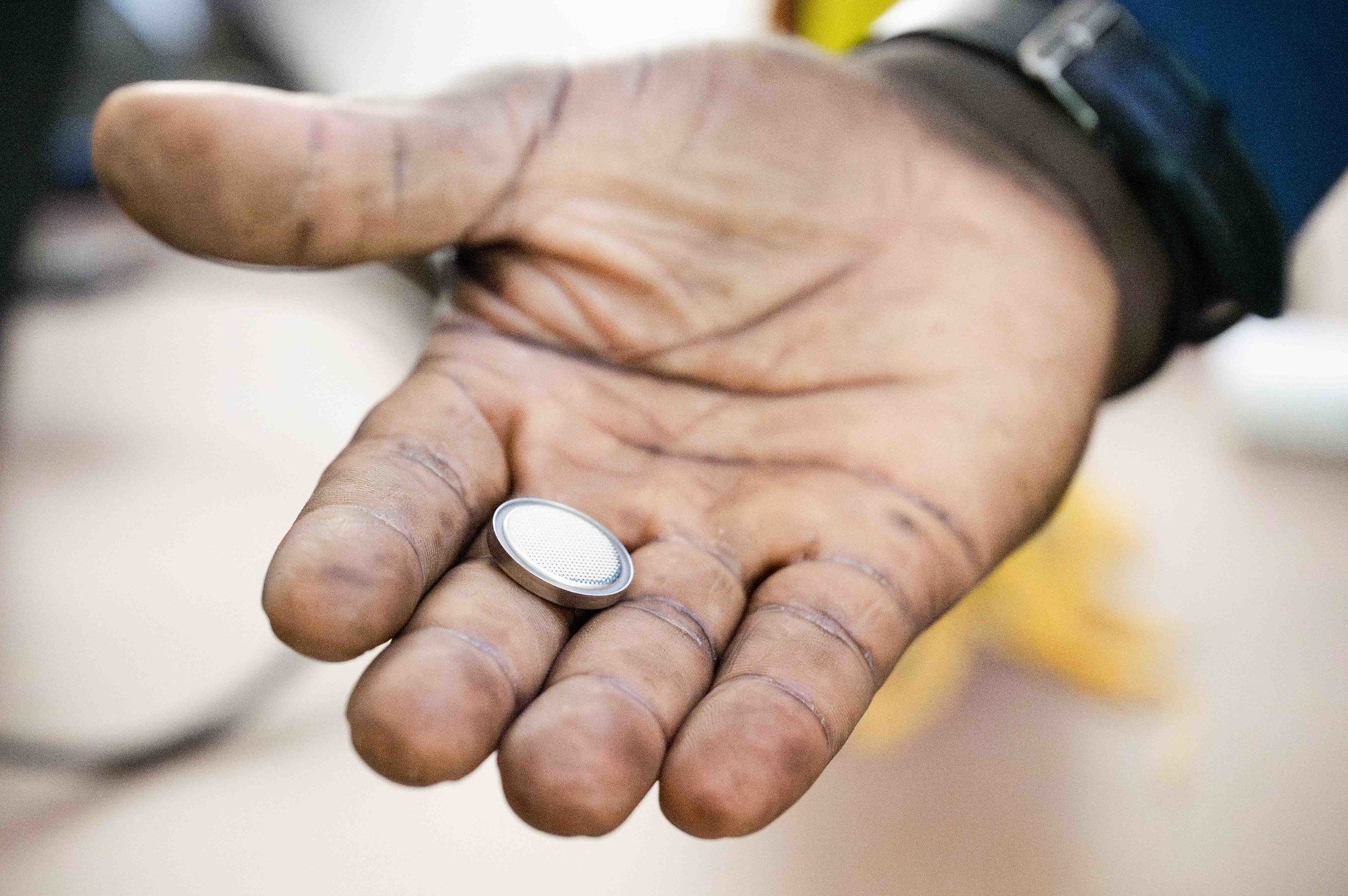
First, Ngom and collegues dry peanut shells and grind them into powder. Second, they put the powder in water and filter an extract from it. Then, they use the extract to make the positive electrode and the solid powder residue to make the negative electrode. Finally, these two electrodes are used to build the battery cells. The batteries that Ngom shows in his office are indistinguishablecolleagues from those available in stores around the world, and he and his team are now working to bring them to the market.
Hover over the image to discover the equipment.
Ngom’s team has secured five TWAS grants, which allowed them to acquire the laboratory's equipment. “TWAS has laid the foundation for everything in my research laboratory, including the support for the purchase of our very first piece of equipment,” he explained. Today, his equipment includes furnaces, a low-speed refrigerated centrifuge, and an autoclave, which are essential for their work.
Nurturing the Next Generation
Ngom has authored over 100 scientific papers and presented his research at international conferences across the world, including South Africa, Ghana, Kenya, Morocco, Egypt, the United Kingdom, the United States, and Canada. But his true passion is mentoring the next generation of researchers.
“We need to help young scientists build the soft skills that enable them to become better communicators, write reports, apply for grants, and author publications, scientific articles, and reviews," he explained.
One of his protégés is Ndeye Maty Ndiaye, a former student turned colleague.
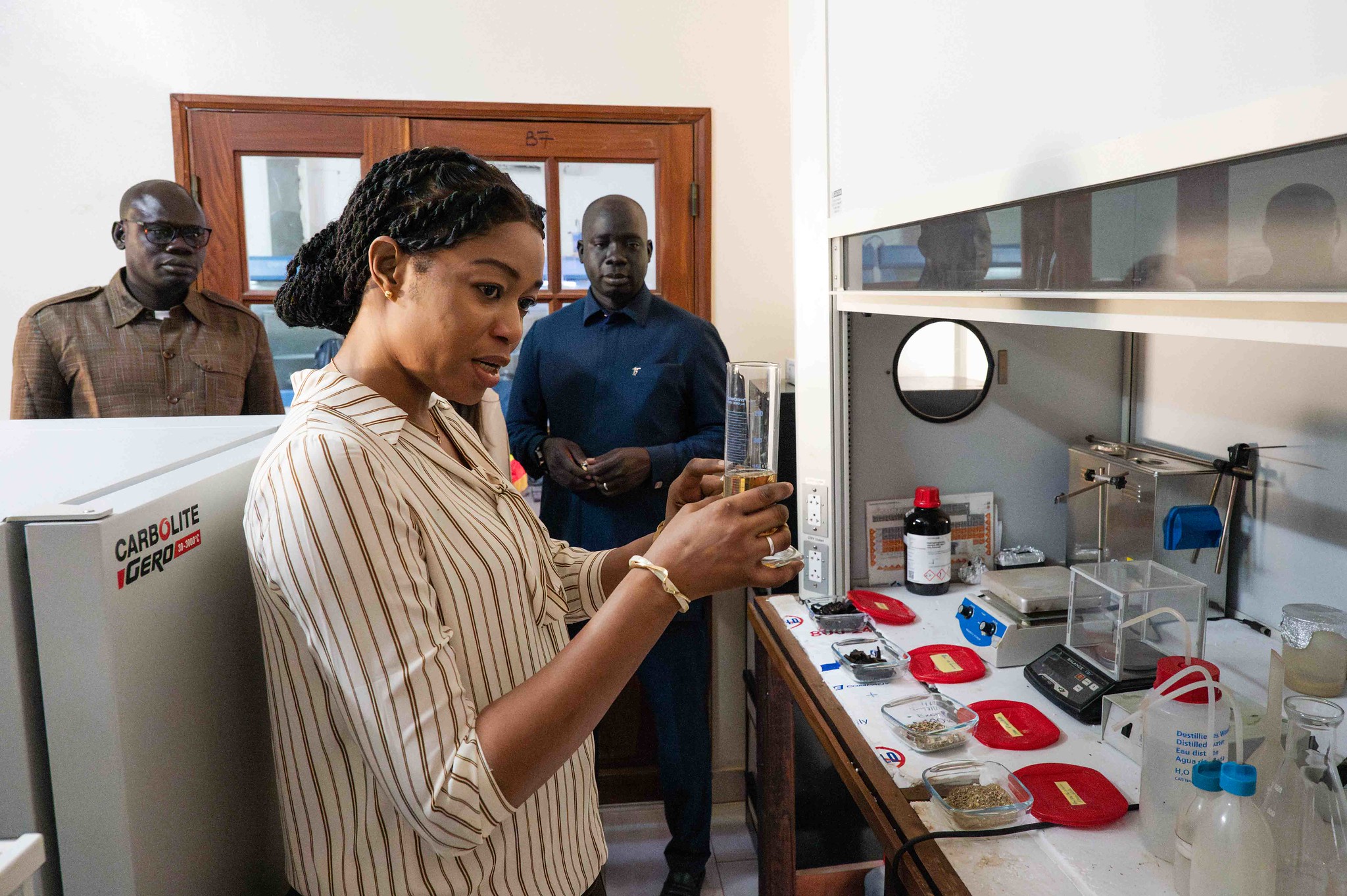
TWAS’s support allowed her to buy an oven, a distilled water machine, and chemicals—but she believes the significance of research grants extends beyond immediate research outcomes. For her, TWAS funding provided crucial early-career support. "When I received the email confirmation that my proposal was accepted, it boosted my confidence and assured me that I could become a scientist,” she reflected. “My whole career started thanks to TWAS.”
Ndiaye believes that climate-friendly energy storage solutions address a critical development challenge. "Access to energy can improve education," she explained, noting how reliable power enables students to study after dark and use electronic devices. This practical application of physics research demonstrates how local scientific innovation can address interconnected development challenges.
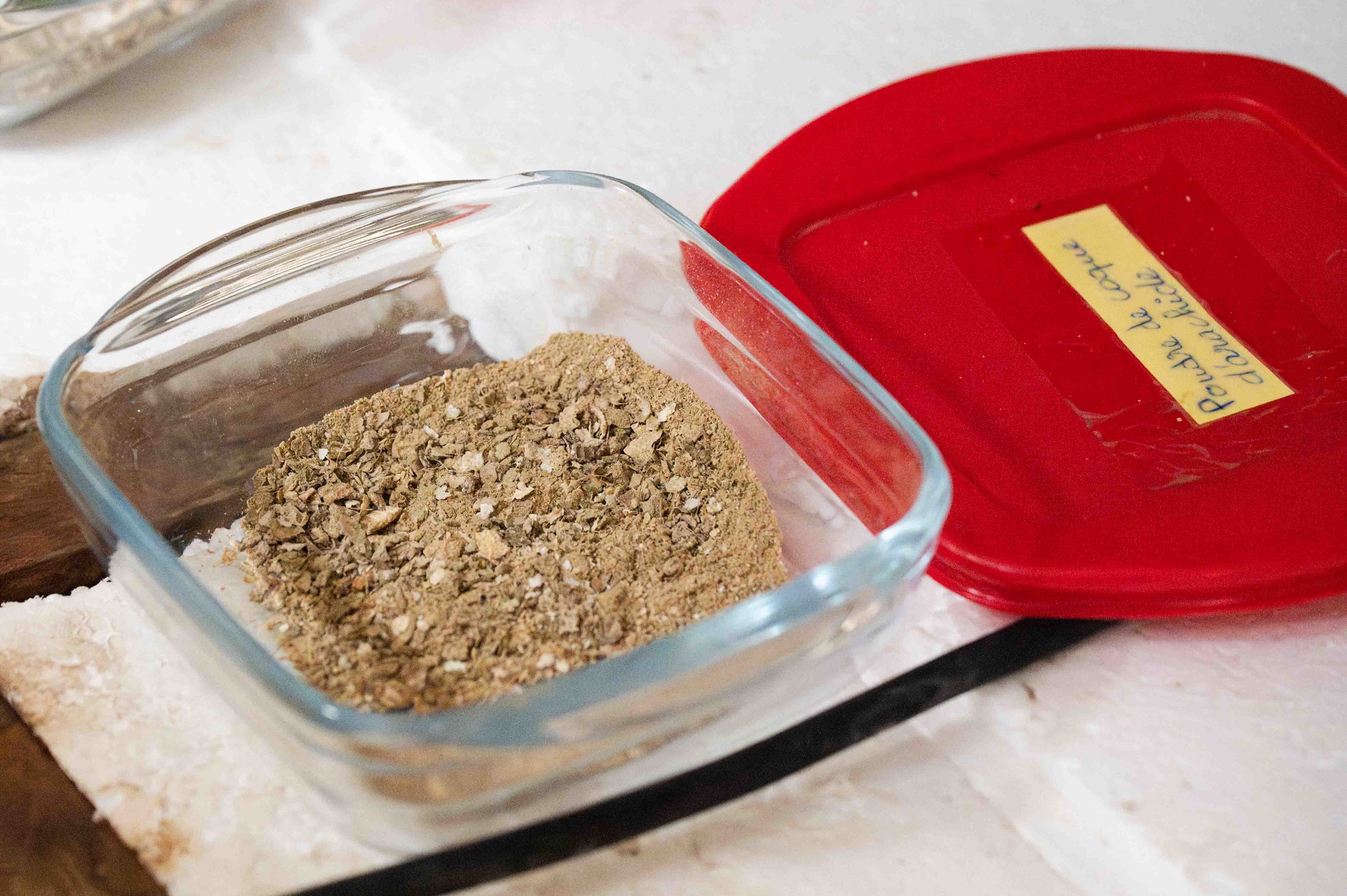
“The next stage will be to bring this technology to the people, but to make sure people benefit from our work. We need to work in partnership with industry and the private sector,” she said.
The impact of TWAS support on UCAD goes beyond Ngom’s lab. Since 1993, researchers across various UCAD departments have secured 33 TWAS Research Grants, with total funding exceeding USD 450,000. This investment has enhanced the laboratories’ visibility, attracted additional donor support, and shown how a relatively small investment can unleash Africa’s scientific potential.
On Africa's Frontline: Senegal's Fight Against Emerging Viral Threats
A short ride on a busy road overlooking the waves of the ocean leads from UCAD to the Pasteur Institute of Dakar (IPD). Founded in 1924, the centre has evolved into a vital hub for Senegal’s health system that combines strong research with practical healthcare.
Here, a new generation of African scientists is working to tackle urgent health challenges. Among them, in the institute’s Virology Department, is research assistant Ndeye Sakha Bob. Her current work, supported by a TWAS Research Grant, is focused on a growing threat: dengue fever.
World Health Organization (WHO) reported a nine-fold increase in dengue infections across its African region since 2019, with nearly 172,000 suspected cases and 753 deaths reported across 15 countries by late 2023.
"Dengue has become endemic in Senegal, with epidemics increasing in frequency and severity," Bob said. Medical staff must cope with the absence of rapid diagnostic tools, particularly for severe hemorrhagic cases where, as she emphasizes, "every minute counts".
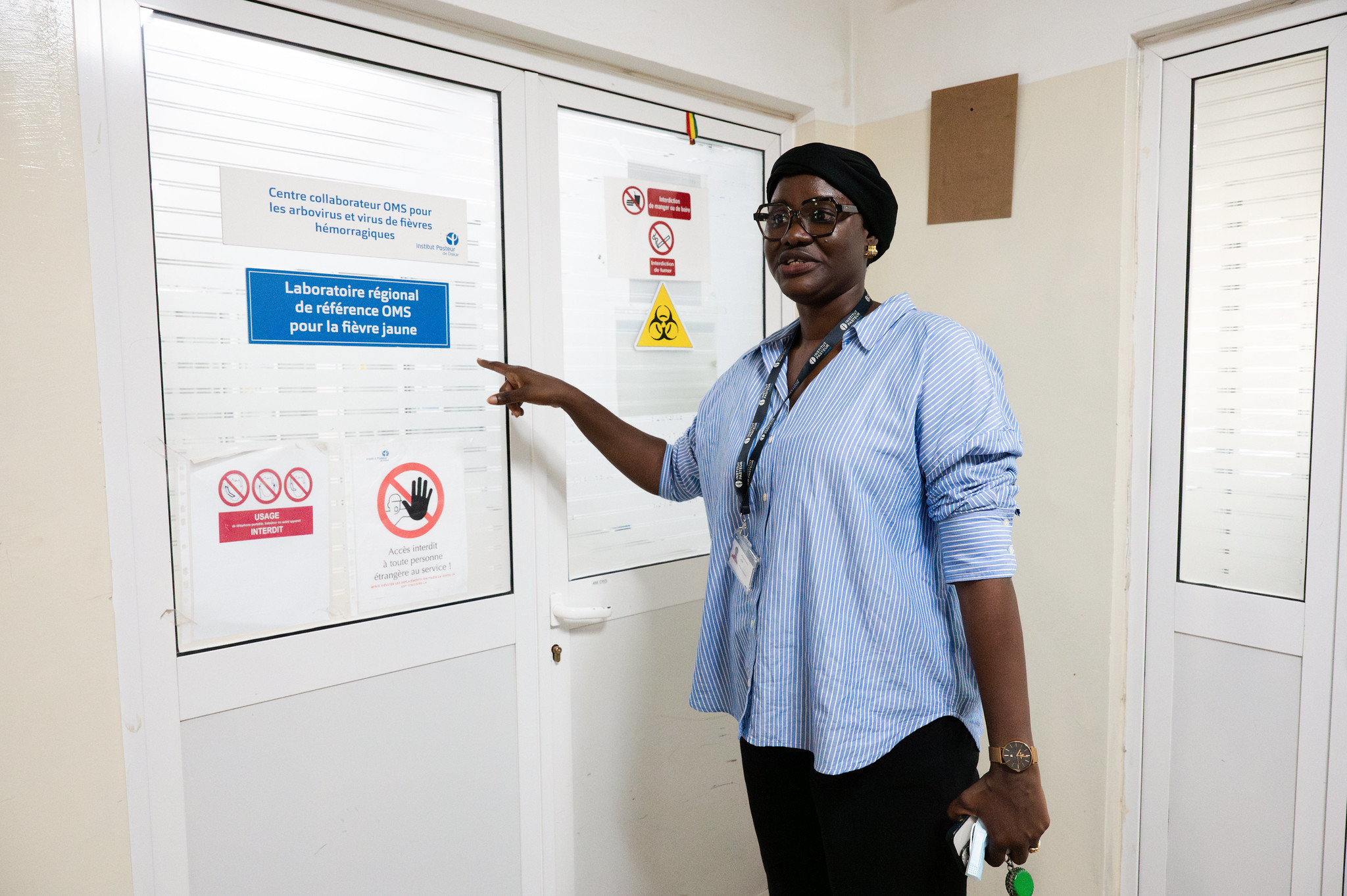
The complexity of the challenge is magnified by concurrent outbreaks. Senegal and Mali have simultaneously faced dengue, Zika, and chikungunya outbreaks, revealing serious gaps in the region's diagnostic capabilities.
Bob's research focuses on finding signs to distinguish between mild and severe dengue cases by studying ‘metabolomics’— the study of small molecules, called metabolites, in cells, tissues, or organisms. Metabolites are the products of various biological processes, including viral infections.
"Understanding how these metabolites relate to symptoms and disease progression is incredibly valuable for doctors and healthcare workers. It helps them decide the best way to treat patients and manage their care effectively," Bob explained.
This research, she notes, represents a crucial step toward developing much-needed rapid diagnostic tests for dengue. The TWAS grant has enabled a strategic collaboration with McGill University in Canada, allowing Bob and colleagues to build sustainable diagnostic capabilities in West Africa.
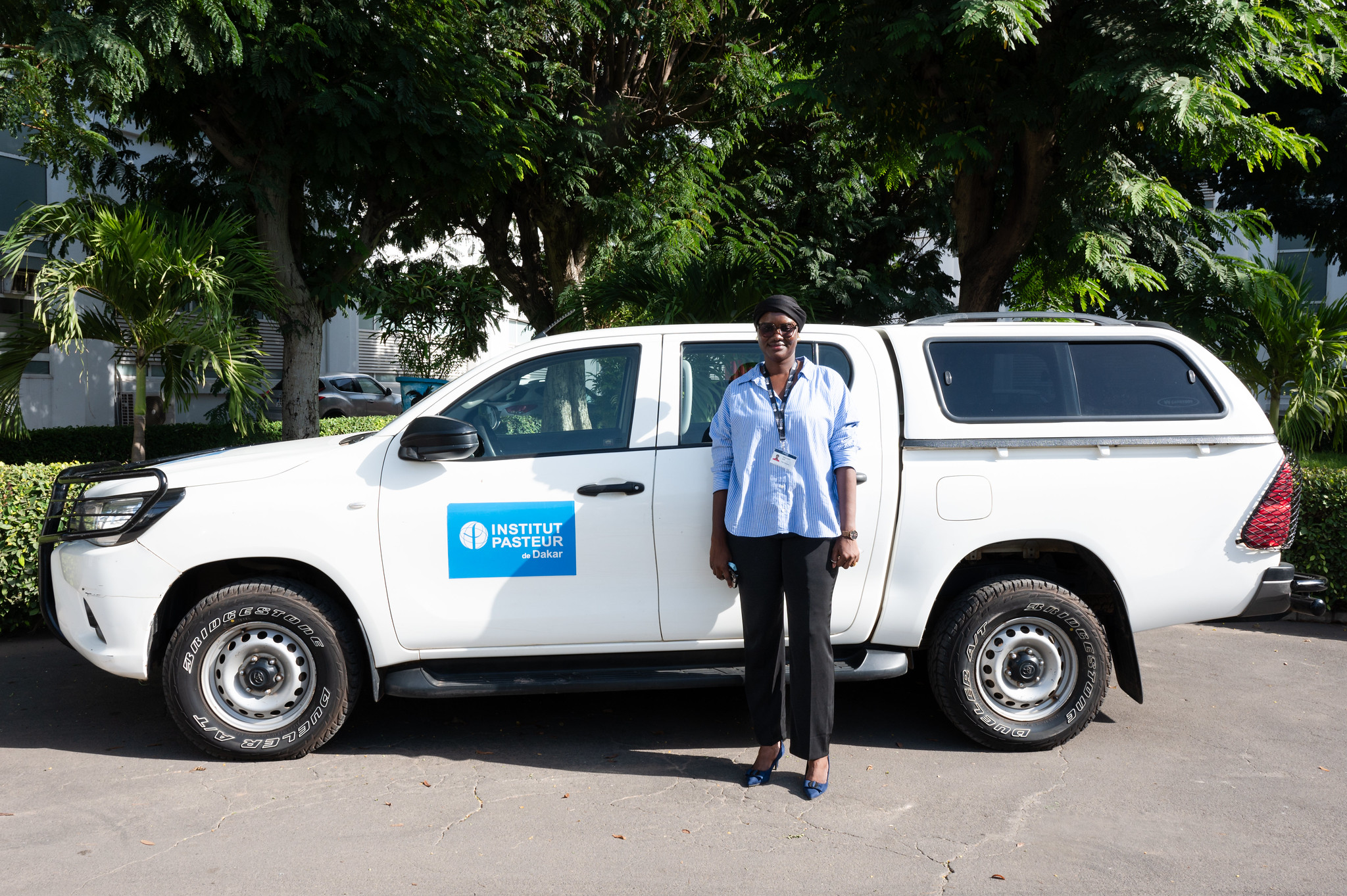
As climate change and global mobility continue to reshape disease patterns, institutions like IPD and researchers like Bob stand at the forefront of Africa's evolving public health response. The convergence of these efforts at IPD reflects a larger truth about Africa's public health challenges: African science, and especially its emerging generation of new researchers, need support.
Maths to Address Systemic Challenges
Leaving the cityscape behind, the Senegalese countryside passes in all its glory. It is home to baobabs—trees that can be as tall as a six-story house and live more than a thousand years.
Despite the beautiful landscape, people in many areas of the country endure significant hardships. Data by the International Fund for Agricultural Development (IFAD) show that almost 40% of the population lives in rural areas, where the poverty rate exceeds 57%, more than twice that of Dakar.
These disparities highlight the need for comprehensive development strategies. The United Nations includes Senegal in its list of Least Developed Countries (LDCs). But, as highlighted in the2021 UNESCO Science Report, the country's development framework called the Emerging Senegal Plan (PSE) aims to turn Senegal into an upper middle-income country by 2035. The three pillars of this plan are the structural transformation of the economy, the promotion of human capital, and good governance.
Although the economy experienced an average real GDP growth rate of 6.2% between 2014 and 2018, it is still dominated by the services sector and lacks a sufficient number of skilled workers.
TWAS-supported mathematician Moustapha Dieye, a Lecturer at the Ecole Polytechnique de Thiès, believes his discipline is pivotal for the development of his country. “We need a lot of engineers and managers, and I am teaching mathematics to help Senegal get them,” he explains.
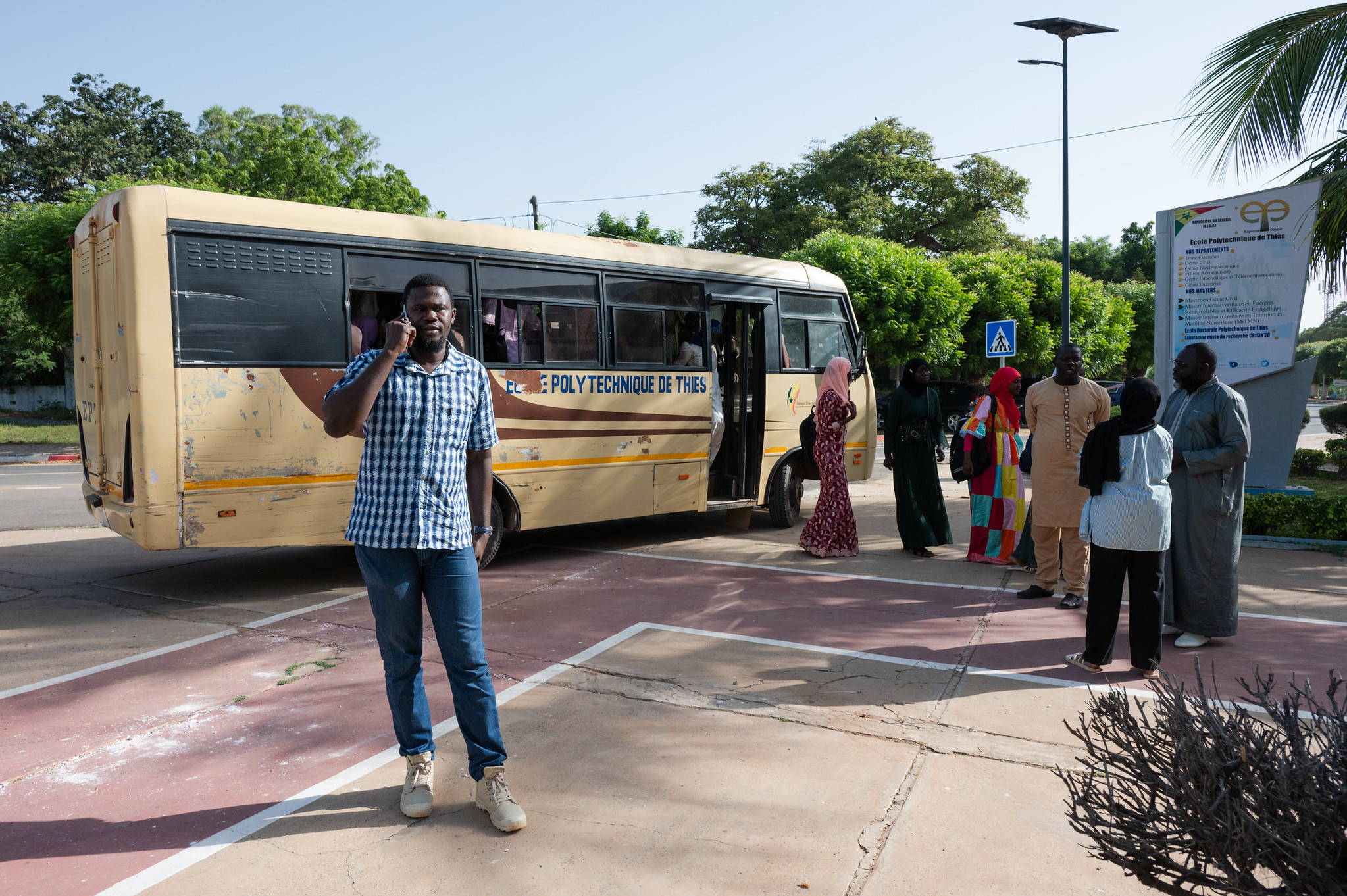
What began as a request for mathematical textbooks, Dieye recalls, evolved into a comprehensive research support package that has reshaped both his career and his institution’s research capabilities. "When they (TWAS) told me they'd give me USD 20,000, I was really shocked," Dieye said flipping through the pages of one of the books in his office.
The TWAS Research Grant allowed him to acquire specialized literature, a projector, and a printer—essential supplies that made a difference for him and his students alike. But the TWAS Grant exceeded its immediate financial career value. Perhaps more significantly, he said, the funding facilitated crucial professional networking opportunities. Dieye believes his participation in conferences in Portugal and Rwanda is a testament to how targeted funding can integrate African researchers into global scientific networks.
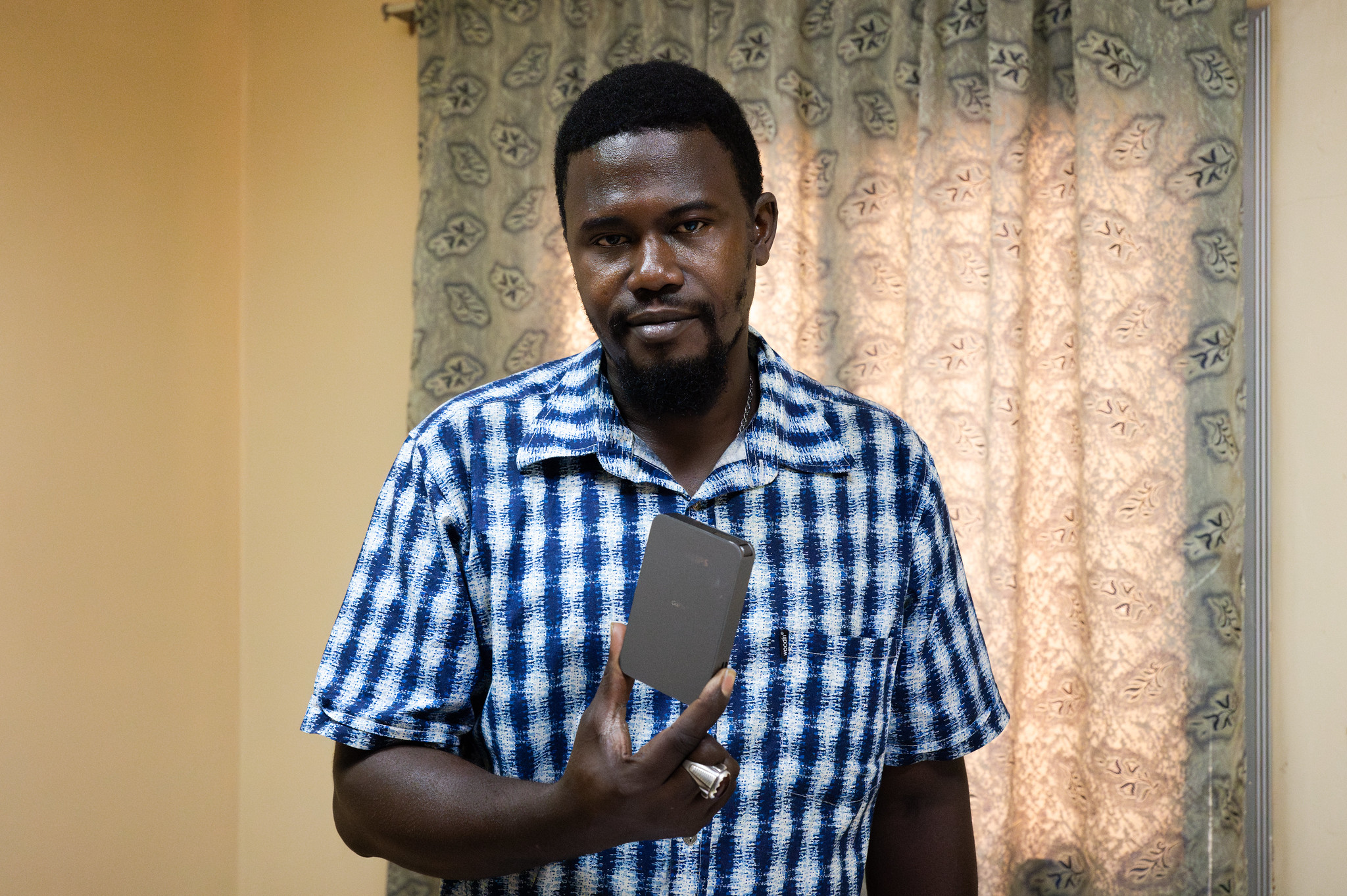
He also believes African academia faces other structural challenges. "We don't know how to sell our findings, compared to people in other parts of the world," he acknowledged, pointing to a crucial skills gap in research communication and promotion. Scientific excellence alone isn't sufficient for international recognition, Dieye said, stressing that researchers also need to know how to present their work and other soft skills.
In November 2024, he joined more than 60 other African researchers at the TWAS Skill Building Workshop in Dakar, Senegal. This event gathered beneficiaries of the TWAS Research Grants Programme, supported by Sida, and theSeed Grant for New African Principal Investigators (SG-NAPI) Programme, supported by the German Federal Ministry of Education and Research (BMBF). The participants’ wealth of experiences highlights the multifaceted nature of scientific capacity building in Africa.
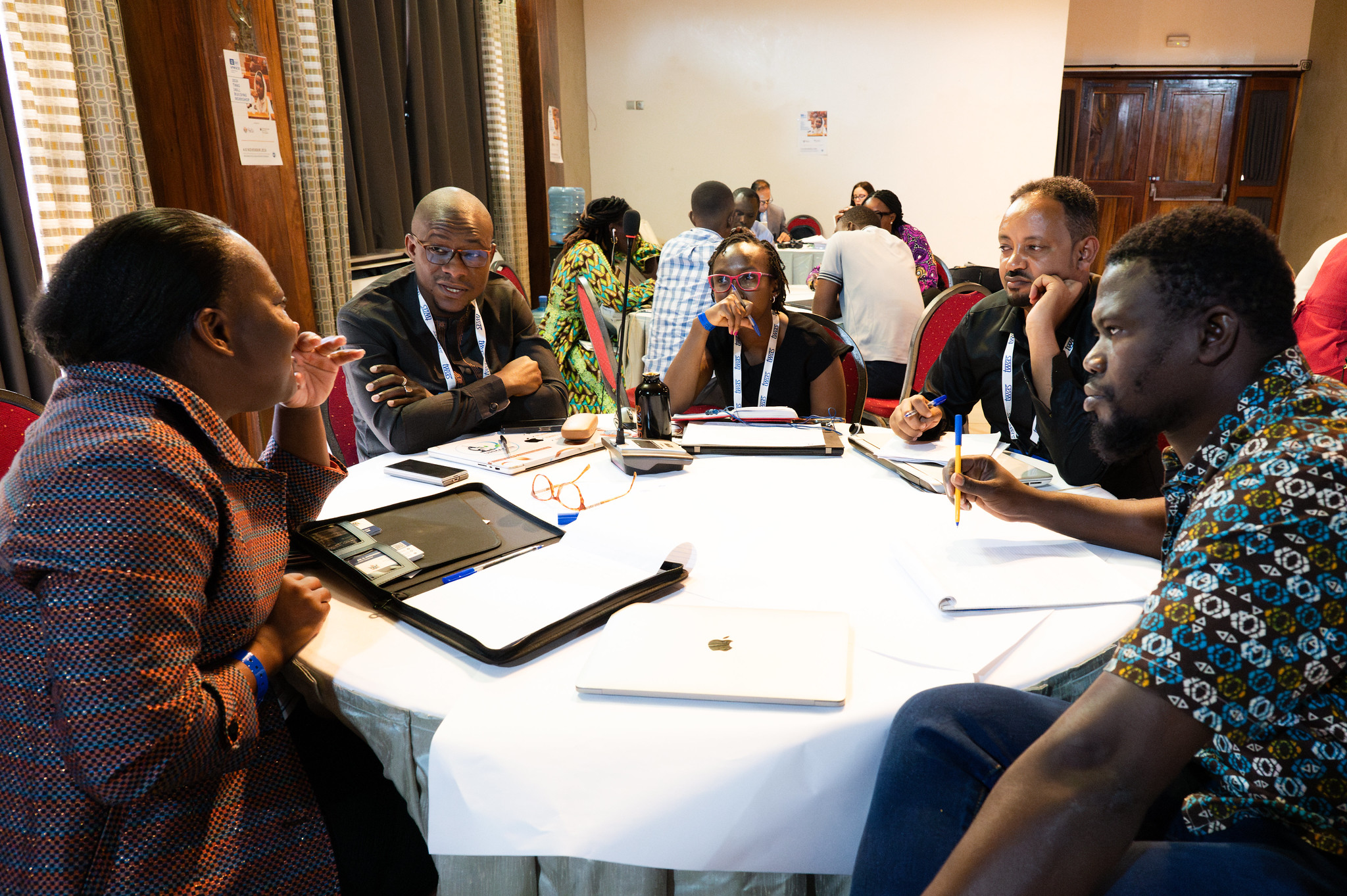
The workshop equipped researchers with skills such as science communication, identifying predatory journals, and research grant proposal writing. It also exposed another crucial dimension: the importance of intra-African academic networks.
Dieye's search for graduate students to supervise illustrates both the challenges and opportunities in regional academic collaboration, and demonstrates how international support can strengthen pan-African academic ties. "At the workshop,” he said, “I asked people from the Ivory Coast, from Cameroon, and from Benin to introduce their students.”
Giovanni Ortolani
More photos are available here and on the TWAS Flickr page
